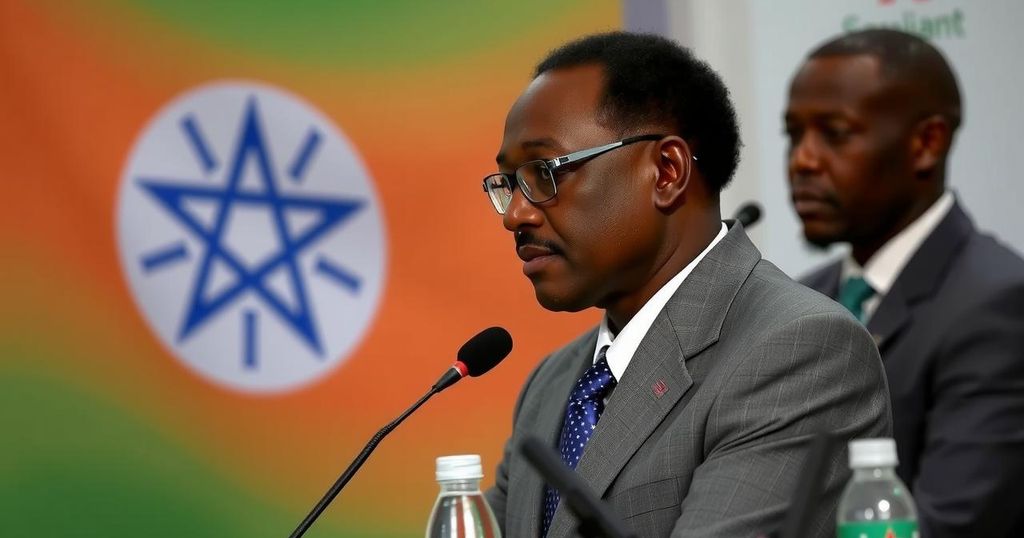Ethiopia Rejects Somalia’s Accusations of Attack, Cites Peace Spoilers

Ethiopia denies Somalia’s claims of an attack in Doolow, attributing tensions to disruptive elements rather than its forces. Somalia had accused Ethiopian troops of aggression against its security forces, which Ethiopia contested, emphasizing its commitment to peace as outlined in the Ankara Declaration. The dialogue between the nations underscores ongoing efforts to stabilize relations in the Horn of Africa.
Ethiopia’s Ministry of Foreign Affairs has rejected accusations from Somalia regarding an alleged attack by Ethiopian forces in Doolow. The ministry denounced the claims as “not true” and attributed the incident to “certain elements intent on derailing the normalization of relations between Ethiopia and Somalia.” They referred to these individuals as perpetual spoilers of peace within the Horn of Africa, emphasizing the need for stability and cooperation.
On December 24, Ethiopia’s MoFA released a statement asserting that the Doolow incident was instigated by groups looking to disrupt the peace efforts reflected in the Ankara Declaration. The ministry underscored its cooperation with the Somali government to prevent recurrence of such incidents while reaffirming its dedication to fostering better relations underlined by the declaration.
Somalia had previously condemned what it characterized as a “blatant act of aggression,” alleging that Ethiopian troops had conducted an unprovoked assault on bases belonging to the Somali National Army, National Intelligence and Security Agency, and Somali Police Force. Reports suggest that the confrontation resulted in fatalities and injuries, prompting Somalia to deem the attack a serious violation, particularly given its timing amidst ongoing peace efforts.
The accusations surfaced shortly after Somalia dispatched a high-level delegation to Addis Ababa, led by Foreign Affairs Minister Ali Omar, aimed at reinforcing commitments stemming from the Ankara Declaration. Somalia continues to advocate for measures to address breaches of its sovereignty, emphasizing that it will not remain passive in the face of such alleged violations.
Ethiopia, for its part, emphasized the significance of the Ankara Declaration and the determination of both nations’ leaders to enhance their bilateral relationship and promote regional peace. The dialogue between the two countries remains critical as they work toward repairing and strengthening their ties in the intricate landscape of the Horn of Africa.
The Horn of Africa has remained a contentious region, with Ethiopia and Somalia historically experiencing tensions over territorial disputes and military engagements. The Ankara Declaration, signed by the two nations as an agreement to promote peace and cooperative efforts, is central to their diplomatic endeavors. However, incidents like the one in Doolow highlight ongoing challenges and the influence of disruptive factions, complicating these peace-building initiatives.
In summary, Ethiopia has firmly denied allegations from Somalia regarding an attack in Doolow, attributing the situation to disruptive entities within the region. While Somalia expressed serious concern about the alleged aggression, Ethiopia remains committed to enhancing diplomatic relations and maintaining peace in accordance with the Ankara Declaration. Both nations face the challenge of ensuring stability as they navigate their intricate relationship amidst broader regional dynamics.
Original Source: addisstandard.com








